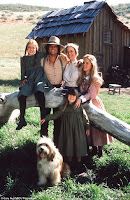A different language is a different vision of life
Federico Fellini
Learning a new language may be quite an adventure...!
Some people see language just as a means of communication. Sherlock would say "That's obvious, Watson, but..."
 Learning another language means far more than acquiring and using varied lexis, mastering grammatical rules, understanding common idiomatic expressions, and using appropriate pronunciation, rhythm and intonation. These and other issues are the building blocks of everyday communication. However, language is produced by people differing in origin, race, cultural background, climate, educational system, interest, well-being, ...
Learning another language means far more than acquiring and using varied lexis, mastering grammatical rules, understanding common idiomatic expressions, and using appropriate pronunciation, rhythm and intonation. These and other issues are the building blocks of everyday communication. However, language is produced by people differing in origin, race, cultural background, climate, educational system, interest, well-being, ...Thus, the language of a particular group of people varies widely compared to that of another group of people living in a distant geographical site and using the same language; people living in warm, tropical regions are more talkative, express their feelings with strong voice and bodily movements, while people in cold regions speak with a lower voice, almost whispering their ideas, taking good care of cold drafts from affecting their throats and moving slowly to keep their bodies warm.
 |
| Similar and different |
Thus, you might read "Monday thru Friday" instead of "Monday through Friday" or "tonite" instead of "tonight" and may hear "overr-itiin" instead of "over eighteen"...
Films, comics, facebook, videos, blogs, internet, RPGs, emoticons, chatting via whatsapp, twitters, ... are contributing to enrich, for the better or the worse, our language.
In this modern, computarized world, people are closer than ever in the history of mankind through the use of internet and learning a language can be facilitated through the use of plenty of resources, such as videos, on-line activities, games, blogs, songs, pen pals, youtube ...
Even visiting other countries is becoming easier.
During these terms you have been bombarded with exercises of various kinds: exercises from the web, webquests, role playing games and situations, instructions and dialogues in English, pronunciation exercises, blogs, units with special contents, oral interactions, videos, ... and still there is a lot to be learnt. So, I wonder .... what are your English language challenges?
Now it's you turn.
> What comments can you make about your experience learning English at university?
> What about the use of blogs?
> What about the use of blogs?
> What aspects of your English need to be improved and how do you plan to do this?
> Outside the English class, how much are you using English these days? What for?
- Wordcount: 260
- Make comments on your teacher's and 3 of your partners' posts.













